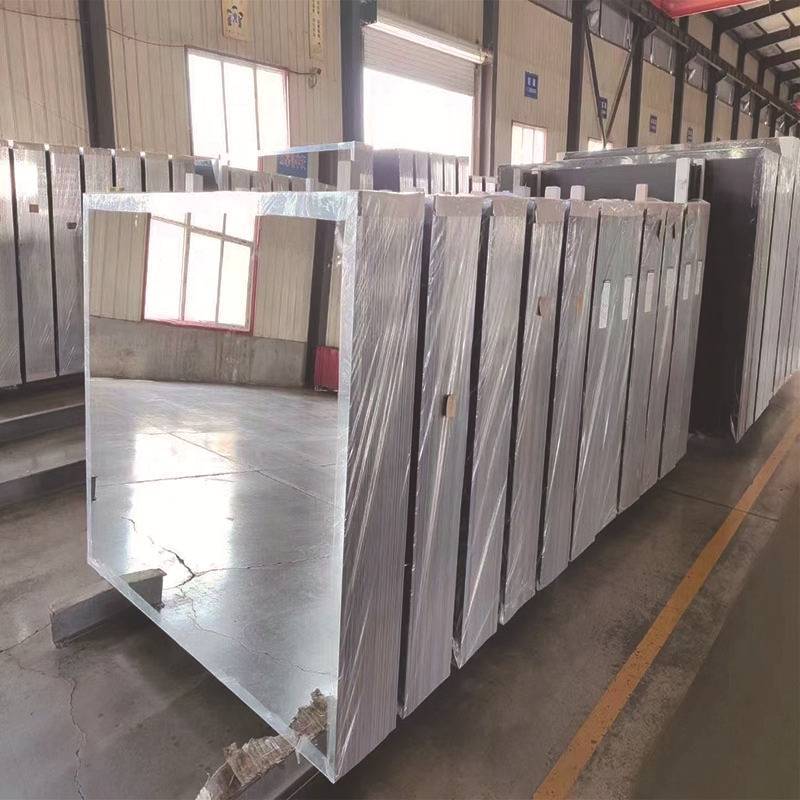Exploring the World of Float Glass Manufacturing
Float glass, a term that has gained prominence in both architectural and industrial applications, has revolutionized the way we think about glass production. This process, known for its efficiency and versatility, was first developed in the 1950s and has since become the dominant method for producing clear glass sheets. As we delve into the world of float glass manufacturing, we uncover the key processes, benefits, and the future of the industry.
The Float Glass Process
The float glass manufacturing process begins with high-quality raw materials, primarily silica sand, soda ash, and limestone. These materials are carefully measured and mixed to create a batch. Additionally, various additives such as cullet (recycled glass) are incorporated into the mix to enhance the properties of the final product.
Once the ingredients are prepared, they are melted in a furnace at temperatures reaching up to 1,700 degrees Celsius (3,100 degrees Fahrenheit). This molten glass is then poured onto a bath of molten tin, which has a lower density. The glass spreads out on the surface of the tin, forming a flat, uniform layer. This is the essence of the “float” in float glass—the glass floats on the tin.
After the glass has formed, it is gradually cooled down in a process called annealing, which relieves internal stresses within the material. This cooling stage is essential for producing high-quality glass that can withstand various applications. Finally, the glass is cut into sheets of desired sizes and packaged for distribution.
Advantages of Float Glass
Float glass offers several significant advantages that make it the preferred choice for manufacturers and consumers alike. Firstly, it provides excellent optical clarity. The smooth surface achieved through the float process minimizes distortions, making it ideal for applications where transparency and visibility are crucial, such as windows and displays.
Secondly, float glass can be produced in large sizes, providing versatility for various construction and design needs. It can easily be customized into different thicknesses and treatments, such as laminated or tempered glass, to enhance strength and safety.
float glass manufacturer
Furthermore, float glass is environmentally friendly
. The recycling process of cullet not only reduces the need for raw materials but also lowers energy consumption during production, resulting in a smaller carbon footprint.
Applications of Float Glass
The applications of float glass are extensive and varied. In the architectural realm, it is commonly used for windows, facades, and curtain walls, blending aesthetics with functionality. In the automotive industry, float glass is pivotal for windshield and window manufacturing, where strength and clarity are paramount.
Moreover, float glass finds its way into the production of glass furniture, mirrors, and a wide array of decorative items. Its adaptability means that it can be transformed through various processing techniques like cutting, polishing, and coating to meet specific customer demands.
The Future of Float Glass Manufacturing
As we move toward a more sustainable future, the float glass industry is adapting to new challenges and opportunities. Innovations in manufacturing processes are essential for reducing waste and enhancing energy efficiency. Technologies such as smart glass, which can change transparency based on external conditions, are also on the rise, providing exciting prospects for architects and interior designers.
Furthermore, the increasing focus on eco-friendly materials and practices is shaping the future of float glass manufacturing. Manufacturers are continuously investing in research and development to produce more sustainable glass solutions, thus aligning with global environmental goals.
Conclusion
Float glass manufacturing represents a convergence of tradition and innovation. Its ability to produce high-quality, clear glass efficiently has made it an integral part of modern construction and design. With ongoing advancements and a commitment to sustainability, the future of float glass looks bright—ushering in new possibilities for industries around the globe. Through continued investment in technology and sustainable practices, float glass manufacturers will undoubtedly play a crucial role in shaping our built environment.
 Afrikaans
Afrikaans  Albanian
Albanian  Amharic
Amharic  Arabic
Arabic  Armenian
Armenian  Azerbaijani
Azerbaijani  Basque
Basque  Belarusian
Belarusian  Bengali
Bengali  Bosnian
Bosnian  Bulgarian
Bulgarian  Catalan
Catalan  Cebuano
Cebuano  Corsican
Corsican  Croatian
Croatian  Czech
Czech  Danish
Danish  Dutch
Dutch  English
English  Esperanto
Esperanto  Estonian
Estonian  Finnish
Finnish  French
French  Frisian
Frisian  Galician
Galician  Georgian
Georgian  German
German  Greek
Greek  Gujarati
Gujarati  Haitian Creole
Haitian Creole  hausa
hausa  hawaiian
hawaiian  Hebrew
Hebrew  Hindi
Hindi  Miao
Miao  Hungarian
Hungarian  Icelandic
Icelandic  igbo
igbo  Indonesian
Indonesian  irish
irish  Italian
Italian  Japanese
Japanese  Javanese
Javanese  Kannada
Kannada  kazakh
kazakh  Khmer
Khmer  Rwandese
Rwandese  Korean
Korean  Kurdish
Kurdish  Kyrgyz
Kyrgyz  Lao
Lao  Latin
Latin  Latvian
Latvian  Lithuanian
Lithuanian  Luxembourgish
Luxembourgish  Macedonian
Macedonian  Malgashi
Malgashi  Malay
Malay  Malayalam
Malayalam  Maltese
Maltese  Maori
Maori  Marathi
Marathi  Mongolian
Mongolian  Myanmar
Myanmar  Nepali
Nepali  Norwegian
Norwegian  Norwegian
Norwegian  Occitan
Occitan  Pashto
Pashto  Persian
Persian  Polish
Polish  Portuguese
Portuguese  Punjabi
Punjabi  Romanian
Romanian  Russian
Russian  Samoan
Samoan  Scottish Gaelic
Scottish Gaelic  Serbian
Serbian  Sesotho
Sesotho  Shona
Shona  Sindhi
Sindhi  Sinhala
Sinhala  Slovak
Slovak  Slovenian
Slovenian  Somali
Somali  Spanish
Spanish  Sundanese
Sundanese  Swahili
Swahili  Swedish
Swedish  Tagalog
Tagalog  Tajik
Tajik  Tamil
Tamil  Tatar
Tatar  Telugu
Telugu  Thai
Thai  Turkish
Turkish  Turkmen
Turkmen  Ukrainian
Ukrainian  Urdu
Urdu  Uighur
Uighur  Uzbek
Uzbek  Vietnamese
Vietnamese  Welsh
Welsh  Bantu
Bantu  Yiddish
Yiddish  Yoruba
Yoruba  Zulu
Zulu 

